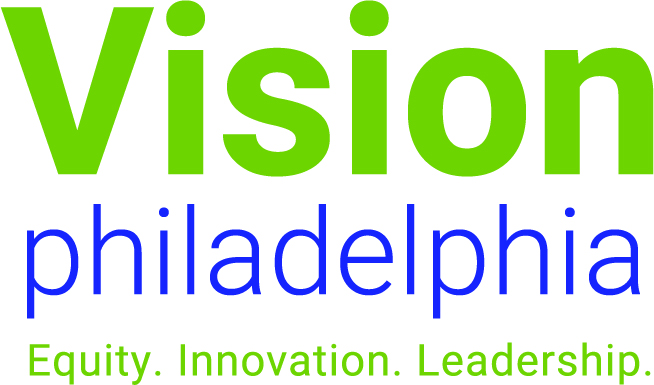Get Involved

 Become a Thought Partner
Become a Thought Partner
Partner with us to produce thought leadership that moves the needle on behavioral healthcare.
 Other options to get involved
Other options to get involved

Thank you!
We received your information and will be in contact soon!
Get Involved

 Grantmaking
Grantmaking
We fund organizations and projects which disrupt our current behavioral health space and create impact at the individual, organizational, and societal levels.
 Participatory Funds
Participatory Funds
Our participatory funds alter traditional grantmaking by shifting power
to impacted communities to direct resources and make funding decisions.
 Special Grant Programs
Special Grant Programs
We build public and private partnerships to administer grant dollars toward targeted programs.
 Program Related Investments
Program Related Investments
We provide funds at below-market interest rates that can be particularly useful to start, grow, or sustain a program, or when results cannot be achieved with grant dollars alone.
Get Involved

 Tia Burroughs Clayton, MSS
Tia Burroughs Clayton, MSS
Learning and Community Impact Consultant
Add some text here
 Alyson Ferguson, MPH
Alyson Ferguson, MPH
Chief Operating Officer
Contact Alyson about grantmaking, program related investments, and the paper series.
 Samantha Matlin, PhD
Samantha Matlin, PhD
Senior Learning & Community Impact Consultant
Contact Samantha about program planning and evaluation consulting services.
 Caitlin O'Brien, MPH
Caitlin O'Brien, MPH
Director of Learning & Community Impact
Contact Caitlin about the Community Fund for Immigrant Wellness, the Annual Innovation Award, and trauma-informed programming.
 Joe Pyle, MA
Joe Pyle, MA
President
Contact Joe about partnership opportunities, thought leadership, and the Foundation’s property.
 Bridget Talone, MFA
Bridget Talone, MFA
Grants Manager for Learning and Community Impact
Add some text here

A group of nine philanthropic organizations released the first two papers of an on-going series of key recommendations for the next Philadelphia mayor and city leadership.
Philadelphia, PA – Today, a group of nine philanthropic organizations launched Vision Philadelphia, an on-going series that explores promising solutions to improve city services and the quality of life of all Philadelphians. Unified behind a desire for a brighter future, these philanthropic organizations have drawn on their collective experience and insight from community partners to identify key issue areas for the city’s next mayor. The papers are authored by local and national experts and practitioners, providing recommendations and guides around these issues.
“The upcoming changes in mayoral leadership and city council represent an important opportunity for the city to realize a new vision for Philadelphia,” says Shawn McCaney, Executive Director of the William Penn Foundation. “The William Penn Foundation is proud to partner with a committed group of philanthropic organizations to explore and elevate promising solutions to improve city services and quality of life for all Philadelphians.”
The first two papers were released today covering the city’s $1 billion behavioral health infrastructure and the persistent vacancy challenge in the public sector workforce:
Priorities for Improving Philadelphia’s Behavioral Health Infrastructure by Debra A. Pinals, MD, Ruth S. Shim, MD, MPH—Philadelphians have significant behavioral health needs but the city’s behavioral health infrastructure is not built to provide broad access to high quality care. This paper identifies three key areas of focus for the next administration, including youth mental health, the social determinants of mental health, and accountability for both providers and payers.
Improving Quality of Life by Strengthening Philadelphia’s Public Sector Workforce by Joshua Franzel, PhD and Marwan Kreidie—Having a strong public workforce is essential for delivering the public services that help determine quality of life. But it’s hard to provide those services if a city can’t attract and retain a strong workforce. A number of factors, including economic shifts caused by the pandemic, have made public sector employment less attractive. This paper looks at the factors, both national and local, that have brought us to this point and what can be done about it.
More papers will be released over the course of the year to spark dialogue among candidates and the broader Philadelphia community. To read the first two papers and for ongoing updates, visit: www.visionphiladelphia.org.
About Vision Philadelphia
Vision Philadelphia is a collaborative of Philadelphia-based philanthropic organizations committed to advancing promising solutions to improve city services and quality of life for all Philadelphians.
Vision Philadelphia is supported in part by The Barra Foundation, Neubauer Family Foundation, The Pew Charitable Trusts, The Philadelphia Foundation, Regional Foundation, Scattergood Foundation, Stoneleigh Foundation, William Penn Foundation, and United Way of Greater Philadelphia and Southern New Jersey. The opinions expressed do not necessarily reflect those of the organizations. As nonpartisan organizations, they do not grant permission for reprints, links, citations, or other uses of these papers in any way that suggests that the participating entities endorse a candidate, party, product, or business.
For press inquires, contact:
Caitlin O’Brien, cobrien@scattergoodfoundation.org













